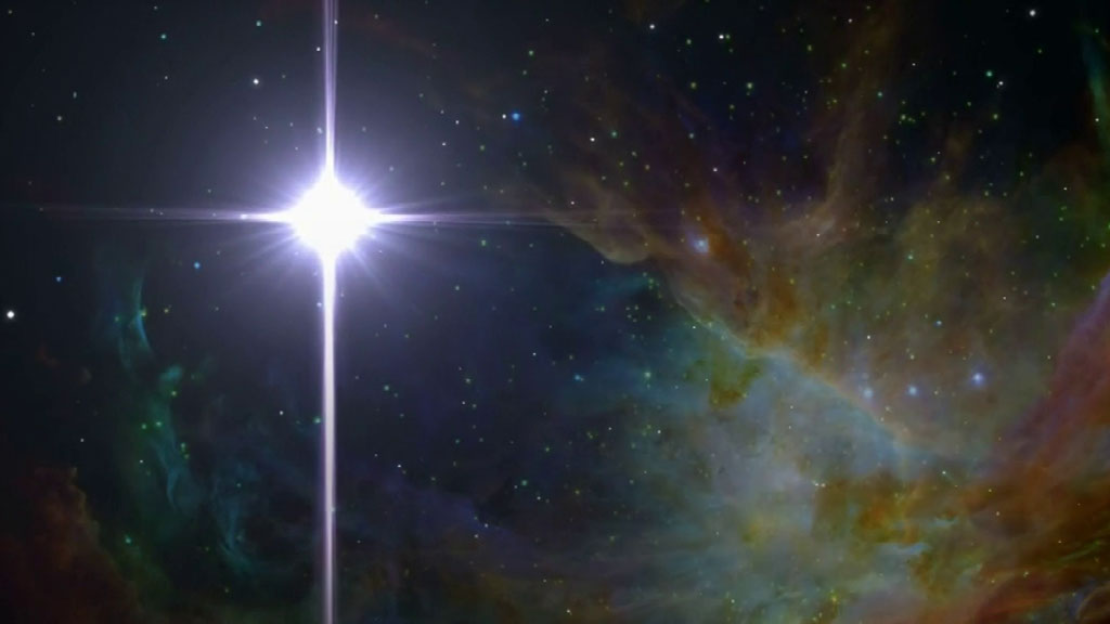After they had heard the king, they went on their way, and the star they had seen when it rose went ahead of them until it stopped over the place where the child was.
--Matthew 2:9
On the Christian calendar, the Epiphany is celebrated each year on January 6. In certain parts of the world, Epiphany is bigger than Christmas (consider traditions in Ethiopia). In some places, children leave shoes filled with hay outside their homes. The hay is for the camels of the wise men, who leave gifts for the children in the shoes as thanks before resuming their journey to Bethlehem.
I sometimes wonder how that cultural anticipation of these treasure bearing wise men compares to our customary tradition of the big guy in the red suit. It seems that Santa has a better marketing team, to say the least.
Is your tree still up? Those at the church are lingering…but barely. They are a bit pitiful by now, windblown as they have been. The limbs are sagging, perhaps symbolically for us all. When I was a kid, my mom used to take down all of the Christmas decorations on the 26th. Not sure why, but she did. Not at my house. We typically go on vacation. But then we come home...and find that the world was pretty much the same as when we left it. The gifts are still out... there is still a bit of Christmas cookie here and there, and the lights are still twinkling on the front porch. I thought for sure the elves would have packed all that stuff up for us and hauled the tree out to the curb. But they don’t. As we pull back in to the driveway, my wife sings the chorus “Back to life...back to reality.”
Ugh…
Matthew has his own way of addressing this dreaded phenomenon: In the time of King Herod...he says. Sounds like an abrupt return to reality. The apocalyptic time of Jesus' conception and God's coming in the flesh has intersected our everyday time, the time of Herod, creating a political crisis. Jesus, the eternal Son of the Father, is born into Herod's time.
Do you suppose this has anything to say about the time in which we live?
Here we have a story about a world leader who presumes to possess more power and social capital than he really has, one who exercises tremendous force in response to his own paranoia, and while politically shrewd, is also increasingly agitated by the presence of foreigners into his territory, believing them to be an undermining threat to the illusion of his own authority.
There is a transition afoot, and it is not going smoothly. This makes no sense to Herod. How is He supposed to deal with a movement, a kingdom whose citizens refuse to believe that violence will determine the meaning of history? Jesus is born into this time; the time of Herod, the time of Rome. Jesus was born into their time and into our time...let every force of empire beware.
So Herod, Matthew tells us, upon hearing the news that "wise men from the East" have come to Jerusalem asking about a child who has been born "king of the Jews" was right to be concerned.
As Stanley Hauerwas has said,
"Herod's fear of this baby reveals the depth of his fragility...And like all who rule by fear, the last thing Herod (or his people) wants is to be surprised. It cannot, therefore, be good news that strangers appear believing a king has been born. Moreover, their reason for finding the new king is so that they may worship him" (2006).
In the first of his letters to the Christians at Corinth, the apostle Paul wrote that "not many... (who were) wise by human standards, not many who were influential, not many...of noble birth" have been chosen by God to know Christ (1 Cor. 1:26). Yet the Christmas story tells us that from the beginning of the Christian era, there have been some who were wise, some who were of noble birth, some who were influential who came to worship Jesus. They were so noteworthy, in fact, that their very arrival caused quite a stir. King Herod was disturbed, and all Jerusalem with him (v. 3).
The first people from outside the family to see the baby Jesus were some Jewish shepherds. Only later do these 'wise men from the East' arrive to pay homage. The Greek term is 'magi,' which is a bit vague, as it could mean sage or magician. These visitors from the East probably came from somewhere in the direction of Persia. A lot of what we have come to believe about them is derived from a long tradition of Christian art, itself based mostly on speculation or conjecture. The New Testament does not call them 'kings,' though our favorite hymns do. The idea is not so far-fetched, however, as it probably arose from thinking about Isaiah 60:3: ('kings to the brightness of your dawn') and you'll notice that Matthew never said there were three of them...just three gifts...gold, frankincense and myrrh.
In order to highlight the global significance Christ's mission in the world, early commentators exercised great imagination in constructing the physical characteristics of the magi to represent different races and unpacked the symbolism of the gifts brought to the Christ child. It was in the 8th century, in a treatise by the Venerable Bede, that the magi are first named. "Melchior was described as "an old man with white hair and a long beard," "Gaspar" as "young and beardless and ruddy in complexion," and "Balthasar" as "black skinned and heavily bearded." The gifts are also interpreted: gold represented an appropriate gift due a king, frankincense, which was used in temple worship, symbolized the one who was to be "a fragrant offering, an acceptable sacrifice, pleasing to God"...our great High Priest, whose entire life was pleasing to his Father. And myrrh, which was used in embalming, signifying the suffering of his ministry, and testifying to the Son of Man who was to die.
Such interpretations may not hold much historical weight, but they do resonate with the message of this passage as a radiant insight into Matthew's understanding of worship and Christian discipleship. If you pass by enough churches this week, you are liable to see signs that say "the wise still seek him." This is true. Without any formal introduction, Matthew says they were wise--if for no other reason--because they were seeking Jesus. Notice that Herod calls all the chief priests and scribes together to get directions on where the birth of Christ will happen, and they seem to have no trouble in immediately identifying the location where the Messiah will be born, and yet, for some reason, they do not join the Magi in their quest.
They may be the religious experts, but we hear nothing of their actual searching! They are the religious leaders, and yet they do not act on what they know. They do not wish to kill Jesus as Herod did, but their children a generation later will. Perhaps Matthew would have us to know that there is a fine line between taking Jesus for granted and finally wanting him out of the way. This sin of complacency is reserved not for the pagans, but for those who claim to know God best.
Hence our growing respect for these wise men. And unlike most men in our contemporary world, these Magi were wise enough to ask directions. How interesting that the revelation of the star was enough to get them started on their way, but they were going to need assistance from the Scriptures (Micah 5:2) if they were ever going to find what that for which they were seeking. Let us not miss the point, here...God may get our attention through creation, but we do not arrive without attending to His Word. And the good news is that none of us actually have to travel that far to get access to the Word today; we just have to take the time and effort to read it.
And lastly, perhaps Matthew calls them wise because once they found Jesus, they stopped to worship and to "pay him homage." I often wonder about this business of "paying homage." How much does homage cost, anyway? In these days after Christmas, we might be inclined to ask, does that myrrh come with a gift receipt? Surely Mary would have preferred to exchange it for something else. Or did the wise men make sure to get a tax right off for that charitable contribution of gold? What was their motivation?
If these wise men are portrayed as a model for the ideal worshipper of Jesus, as so much of our Christian tradition has declared, then what do they have to teach us about the nature of generosity as inspired by the light of God in the world?
The gifts they bring--including themselves--are a response to the greater gift of the Christ child himself. Jesus is revealed as an expression of God's infinite generosity, in which God actually gives God's self, and thus we do not enter into God's economy as equals or to offer anything that can match the gift that has been given. Thus, the gifts of the magi have a sacramental quality to them, revealing that disciples of Jesus are called to participate in this infinite generosity by giving themselves freely to God and others.
And just when we wonder who is included in this radical vision for our time, we are reminded of the one thing Matthew tells us with absolute clarity. What we can be sure is that these 'wise men' were Gentiles, coming from outside the covenant people of Israel. The Feast of the Epiphany is the celebration of the Manifestation of Christ to the Gentiles. The magi's eventual arrival at Bethlehem signified that the coming of God's kingdom that began with the birth of Jesus was a divine act that held significance for all people, whatever their background or from wherever they may have come.
As John Polkinghorne has pointed out, the magi were also intellectuals—students of the stars and seekers after the truth. It took the learned sages somewhat longer than the unlearned shepherds to find their way to Bethlehem, but they got there in the end. Christian faith is not a matter of cleverness, but the Church has always had a rightful place in its pews for those whose call is the scrupulous search for truth.
Matthew gives us so many nuggets for consideration in this passage, it would be a shame to let them pass us by. Then there is the closing line of his story, which might suggest the most telling insight of all.
And having been warned in a dream not to return to Herod, they left for their own country by another road (v. 12).
The vacation over. It was time to share the light at home.
But this time, by a different road...
Isn't that the truth? After an encounter with Jesus, what choice did they have?
This changes everything!
Almighty and everlasting God, who hast made known the incarnation of thy Son by the bright shining of a star, which when the wise men beheld they adored thy majesty and presented costly gifts: Grant that the star of thy righteousness may always shine in our hearts and that for our treasure we may give to thy service ourselves and all that we have; through the same Jesus Christ our Lord.
(Gelasian Sacramentary, eighth century)
Grace to You,
Darren





